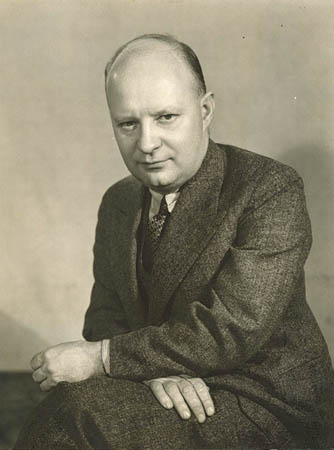Muti and CSO provide blazing advocacy for Hindemith rarity

One of the most heartening aspects of Riccardo Muti’s inaugural season as Chicago Symphony Orchestra music director is the dramatic cut and fiery immediacy he has brought to new and offbeat works (such as this past week’s premiere of Bernard Rands’ Danza Petrificada, a CSO commission).
Hindemith’s Symphony in E flat was one of the victims of program reshuffling due to the music director’s medical indisposition last fall. The rarely heard work received its sole rescheduled performance on the first half of Tuesday’s night’s concert, along with the Strauss and Rands music reviewed last week.
Written in 1940, Hindemth’s symphony was one of the many efforts hailing from the German composer’s productive early years as an exile in the U.S. Hindemith would quickly become a proud American citizen and successful conductor, leading the CSO on several occasions.
The big-boned Symphony in E flat, crafted in the traditional four movements, feels like Hindemith’s attempt to forge a link with the great German symphonists that preceded him, complete with slow movement, scherzo and triumphant major-key coda.
There are characteristic elements to be sure: the perky wind writing, somewhat inscrutable humor, and a light mobile quality that fitfully leavens some of Hindemith’s Germanic brawn.
Yet most striking is how much sections of the symphony seem to reflect his new home in the robust confidence –and occasional bombast — of so many American symphonies of the period. One could almost say that this is the best American symphony written by a German composer.
The Symphony in E flat may not be a timeless masterpiece but it surely deserves more than its current neglect. With the opening brass statement, vigorous main theme, and Hindemith’s brand of astringent lyricism, the symphony maintains interest and momentum, largely avoiding the gray note-spinning of some of the composer’s less inspired “utility music.” Sir Georg Solti led the belated CSO premiere of this work at Ravinia in 1954 yet it hasn’t been heard downtown since Solti’s last performance 37 years ago.
Kudos to Muti for this fine, timely revival. The CSO’s music director led a robust and forceful performance that made no apologies for the work’s volume and occasional overkill. The CSO members’ fully committed playing brought out the muscular brassy swagger as well as the somber valedictory expression of the slow movement with fine trombone and horn playing. Eugene Izotov’s oboe solos lent a plaintive human voice to the off-kilter pastoralism of the middle movements.
Even Muti couldn’t quite cover the wayward moments of the galumphing finale but even here the symphony has an undeniable blowsy-jaunty charm on its nonlinear path to a resoundingly affirmative conclusion.
With the kind of powerful, high-polish performance heard Tuesday night, it’s too bad that Muti’s populist programs next season offer so little of this off-the-beaten-path repertory — especially when the blazing performance of the CSO under their music director provides such vital and convincing advocacy.
Posted in Performances

